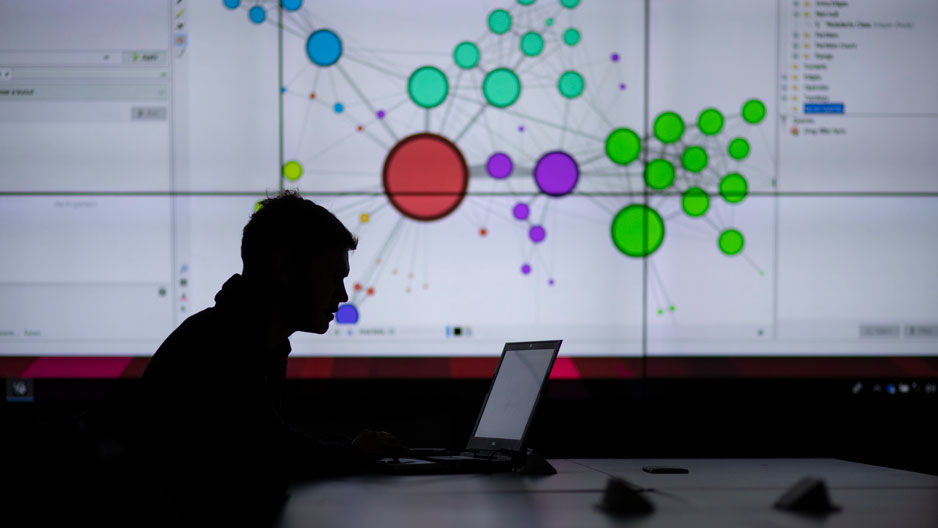Temple Libraries launches interdisciplinary cultural analytics certificate
The Cultural Analytics Graduate Certificate is the first such program in the Philadelphia region and provides discipline-tailored instruction in digital analysis methods.

This fall, along with the opening of Temple’s premier Charles Library, a cutting-edge new graduate certificate program administered by Temple Libraries will launch with its first cohort.
The Cultural Analytics Graduate Certificate is intended to enhance graduate study for students across disciplines by providing them tailored courses to hone analysis methods skills. Temple is the first institution of higher education in the Philadelphia region to offer such a program.
“We’re a little ahead of the curve,” said Professor of English Peter Logan, who serves as academic director of the Digital Scholarship Center and helped to design the certificate program. “We’re in good company with about two dozen other schools in the United States and Canada that offer such programs, but this is by no means the norm.”
In the digital age, as more and more cultural and historical materials and texts become digitized, training in cultural analytics is becoming increasingly important, said Assistant Professor of English Ryan Omizo, who served on the advisory board for the certificate’s development and will teach its introductory course. The certificate program aims to provide students with marketable skills in navigating the digital landscape within their fields.
“Mass digitization alters the ways in which we access, read and analyze culture, and doing research on cultural production increasingly means engaging with ranges of data types,” Omizo said. “Because experiences with programming, project management and data science have broad applicability, the Cultural Analytics Graduate Certificate can also prepare students for jobs outside academia.”
At Temple, this is the first program administered by the library, although the certificate, because it must be issued by a school or college within the university, is formally issued by Klein College of Media and Communication. Associate Professor Adrienne Shaw, a faculty member in Klein’s Department of Media Studies and Production, will serve as program director.
Logan said the goal in designing the certificate was to develop a program that is a sort of “academic Switzerland” that allows students to come in as a cohort and then tailor their coursework to their individual needs.
The certificate is interdisciplinary, with several schools and colleges coming together to help design its courses. Logan said that graduate students in various fields, from law to literature to geography and urban studies, would find use in the program. The certificate draws from numerous schools, colleges and units across the university, including the Center for the Performing and Cinematic Arts, the College of Education, the College of Liberal Arts, the College of Science and Technology, Klein College of Media and Communication, Temple University Libraries and the Tyler School of Art.
The program begins with Omizo’s course, Introduction to Cultural Analytics, then allows students to specialize with a variety of coursework options.
“Students take two electives in more specific cultural analytic methods from a menu or course offerings that tie to their particular research goals or interests,” Omizo said. These courses may include computation methods applied in education, courses focused on cartography and geographic information systems, or other topical coursework. The culminating event of the graduate certificate is a digital project related to each student’s thesis or dissertation.
The introductory course will train students in cultural analytics tools and methods, including computational text processing and data visualization.
Current graduate students and non-matriculated students may apply for the certificate. Applicants already attending Temple must enroll is by the add/drop date for each semester (Sept. 9 for Fall 2019 courses), but will be accepted into the program on a rolling basis. Non-matriculated students interested in pursuing the certificate must apply by Aug. 1 to begin in Fall 2019.
Learn more about and apply to the Cultural Analytics Graduate Certificate program.


